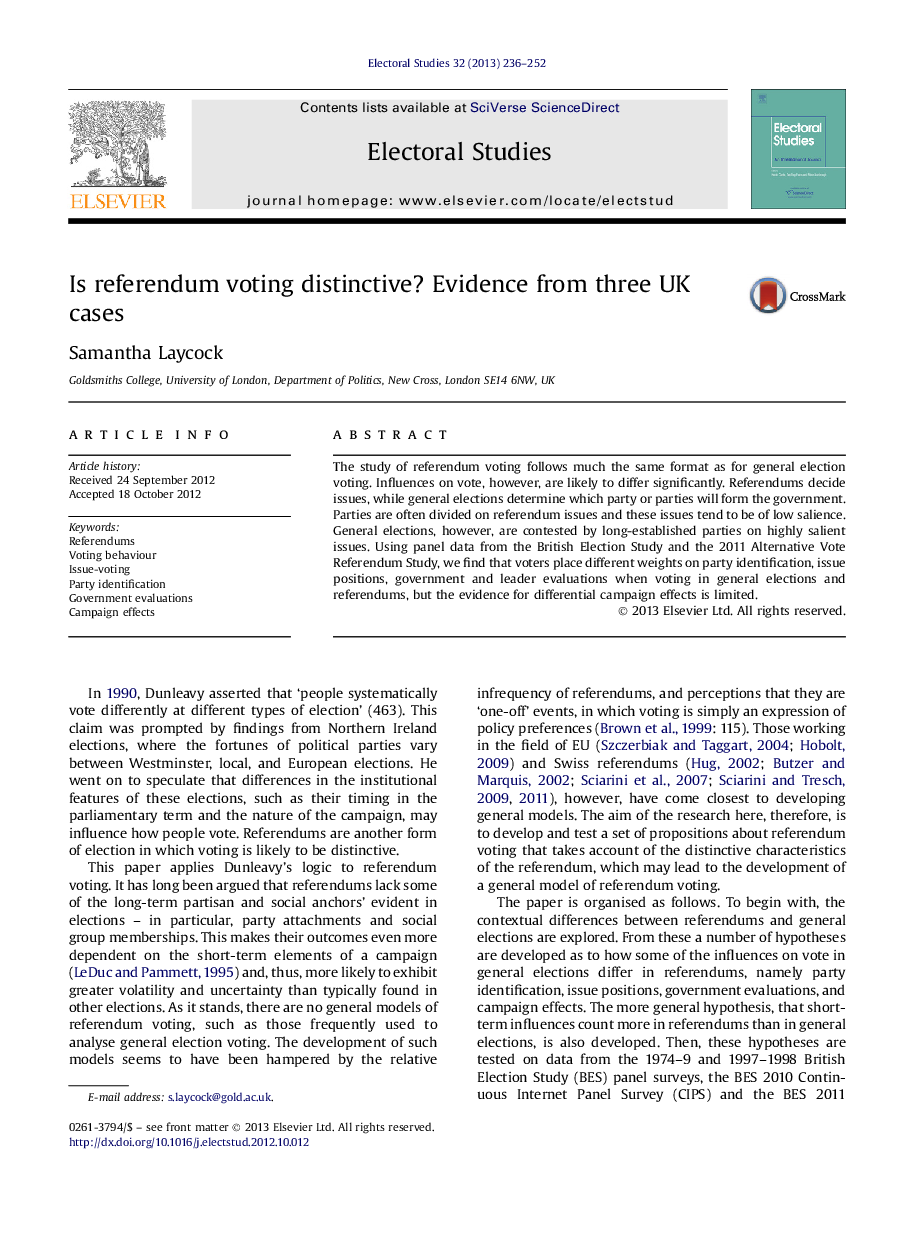| Article ID | Journal | Published Year | Pages | File Type |
|---|---|---|---|---|
| 1051866 | Electoral Studies | 2013 | 17 Pages |
The study of referendum voting follows much the same format as for general election voting. Influences on vote, however, are likely to differ significantly. Referendums decide issues, while general elections determine which party or parties will form the government. Parties are often divided on referendum issues and these issues tend to be of low salience. General elections, however, are contested by long-established parties on highly salient issues. Using panel data from the British Election Study and the 2011 Alternative Vote Referendum Study, we find that voters place different weights on party identification, issue positions, government and leader evaluations when voting in general elections and referendums, but the evidence for differential campaign effects is limited.
► Vote influences differed significantly between general elections and referendums. ► The effect of party identification varied according to context. ► The effect of issue positions was mostly greater in referendums. ► Government and leader evaluations and campaigning tended to have stronger effects on general election vote. ► Short-term effects models explained much more variation in referendum vote than long-term effects models.
